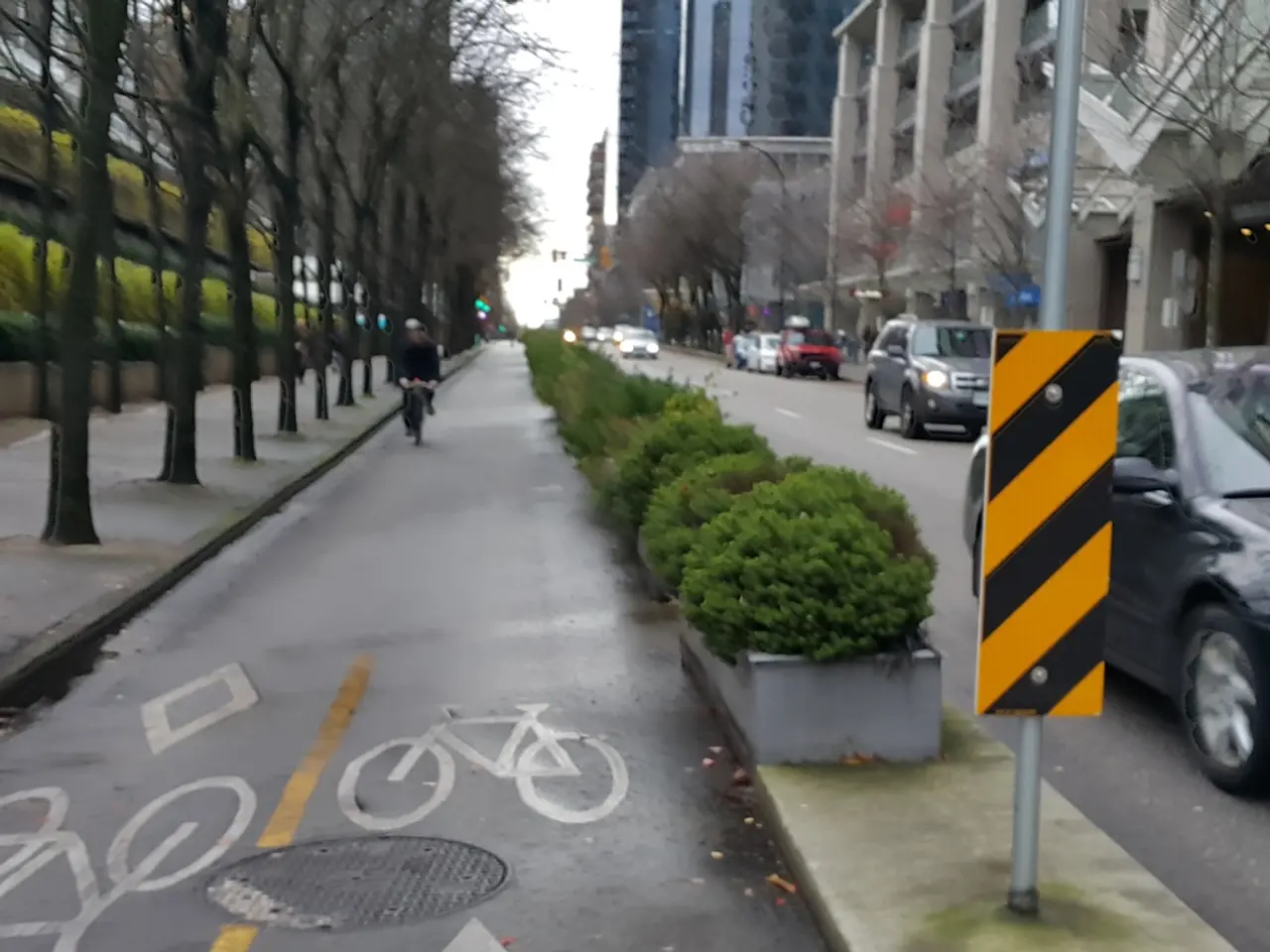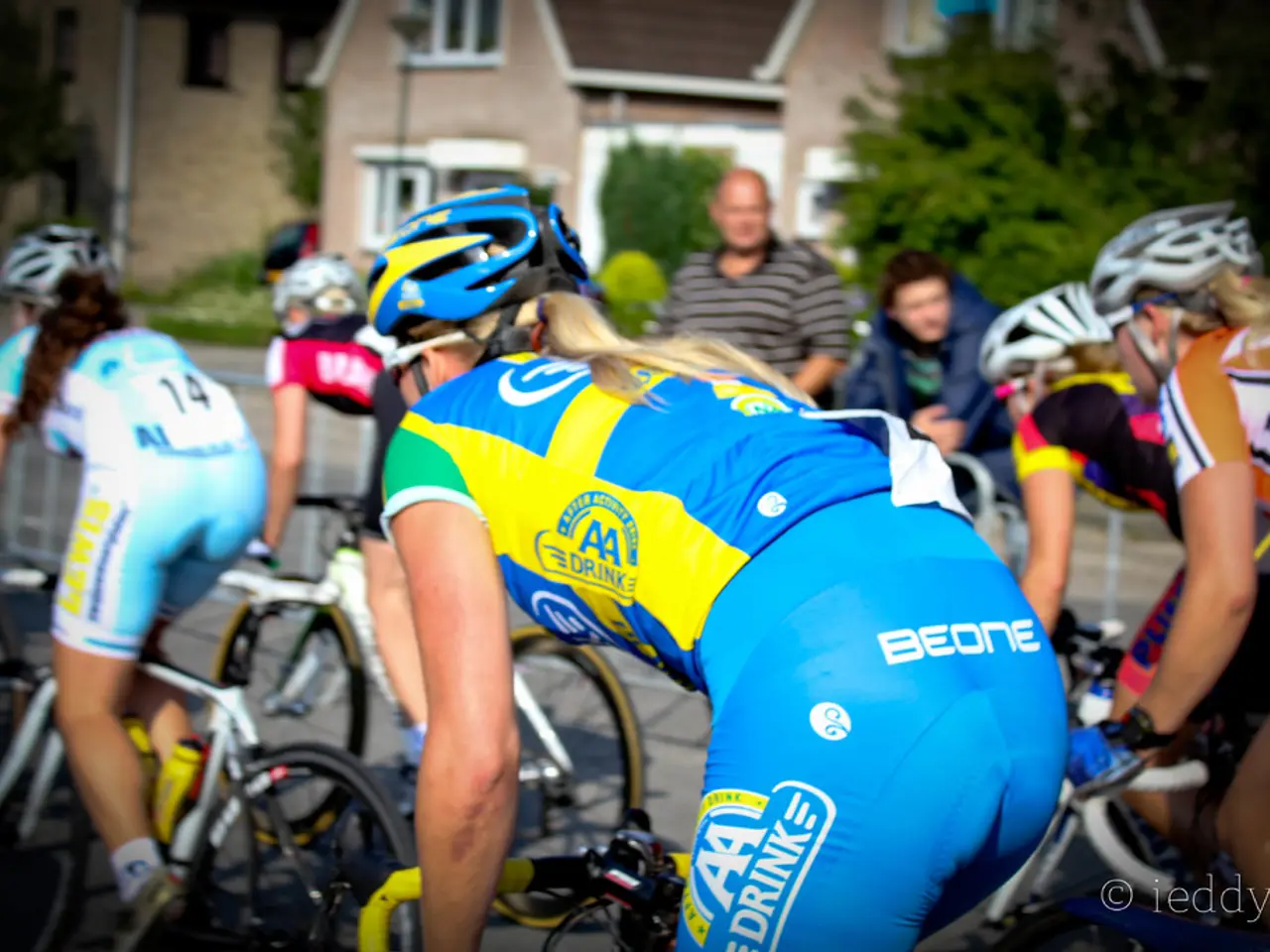Challenging Transition in North Rhine-Westphalia
News Article: Construction Progress of Ruhr Cycling Expressway in North Rhine-Westphalia
The Ruhr Cycling Expressway, a much-anticipated project aimed at enhancing cycling infrastructure in the region, is making steady progress. The latest development comes with the opening of a new section by Transport Minister Oliver Krischer, connecting Gelsenkirchen city boundary with Essen-Kray Nord train station.
This new section, spanning 1.5 kilometers, is part of the RS1 project, a 114-kilometer long cycling expressway planned for the Ruhr region. As of now, seven kilometers of the Ruhr Cycling Expressway are already completed, with another three kilometers set to be opened in August.
However, it's important to note that a 10-kilometer section of the RS1 is currently passable but does not yet meet the cycling expressway standard. This section is part of the overall project, and efforts are being made to bring it up to the desired standard.
The Ministry of Transport NRW has been actively involved in the RS1 project, referring to it as "on track." Regular project-specific working meetings have been held, contributing to the progress of the RS1. In fact, the speedier realization of the RS3 in Bad Oeynhausen can be attributed to these meetings.
The construction process for the RS1 involves complex work, such as the removal of old tracks, installation of new load distribution plates, and corrosion protection, given that the route partly runs over old railway tracks. Furthermore, the renovation of three bridges was necessary to accommodate gritting and snow clearing vehicles in winter for the recently opened section.
The Ruhr Cycling Expressway was first proposed in 2013 by former Transport Minister Michael Groschek, reflecting the region's focus on cultural and infrastructural activities, including projects linked to cycling and urban mobility. Events like the Rhine-Ruhr 2025 FISU World University Games and the "City of Play" art and cycle highway interventions in the Ruhr area are testament to this ongoing effort.
Despite this progress, specific details about the construction progress, challenges, or timelines of the Ruhr Cycling Expressway are not readily available in the public domain. For the latest updates, it is advisable to consult official NRW transport or regional development authorities' announcements or specialized regional infrastructure reports.
It is worth noting that the expansion of the RS1 could potentially shift 52,000 daily trips from cars to bicycles in the future, as suggested by a Forsa survey. The ultimate goal is to create a comprehensive network of cycling expressways in North Rhine-Westphalia, with a total of 275 kilometers planned, but only 7.4 kilometers fully completed so far.
As the Ruhr Cycling Expressway takes shape, it promises to revolutionize cycling infrastructure in the region, making it more accessible and appealing for commuters and tourists alike. Stay tuned for more updates on this exciting project.
Following the opening of a new section of the Ruhr Cycling Expressway, the enthusiasm for sports and outdoor activities in the region is escalating. In light of the progress made on the RS1 project, local news outlets are keen to report on the advancements in sports infrastructure alongside updates on the cycling expressway.







